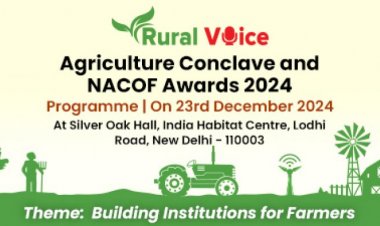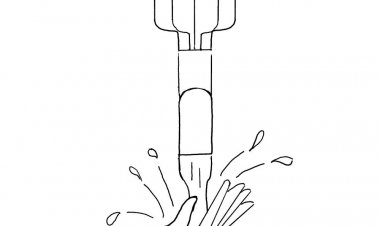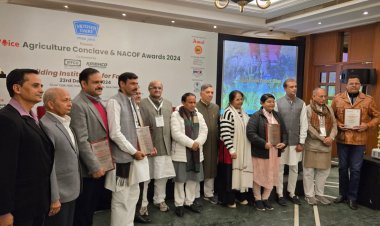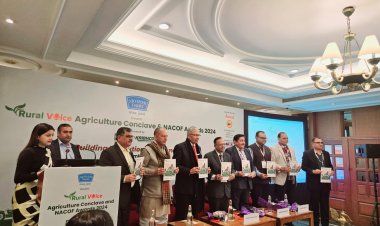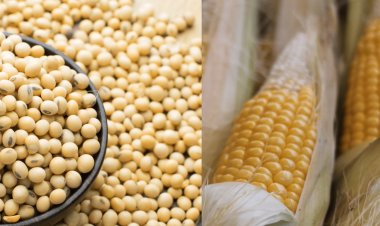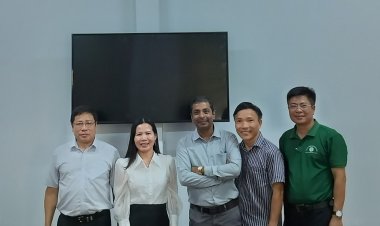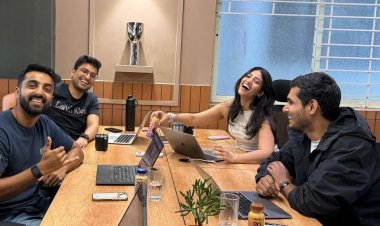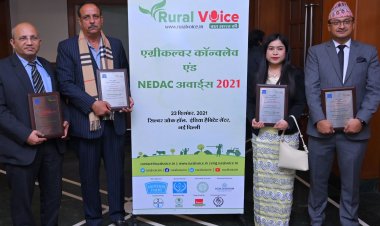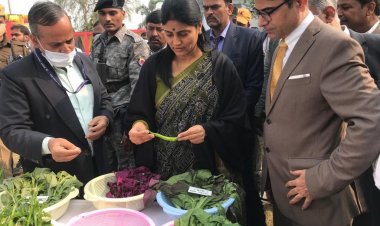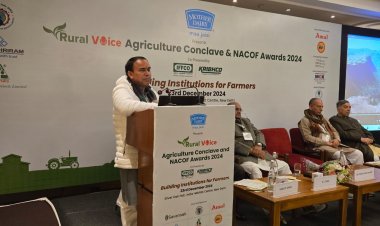Farmers put their views in Rural Voice-Socratus budget discussion
If the nation is the family writ large, the Union Budget of India is household management for the whole country and impacts everyone in ways that may not always be easy to see, especially by citizens such as farmers who aren’t considered sophisticated. If we want to recast that impression, we need to create opportunities for farmers to be seen as full citizens
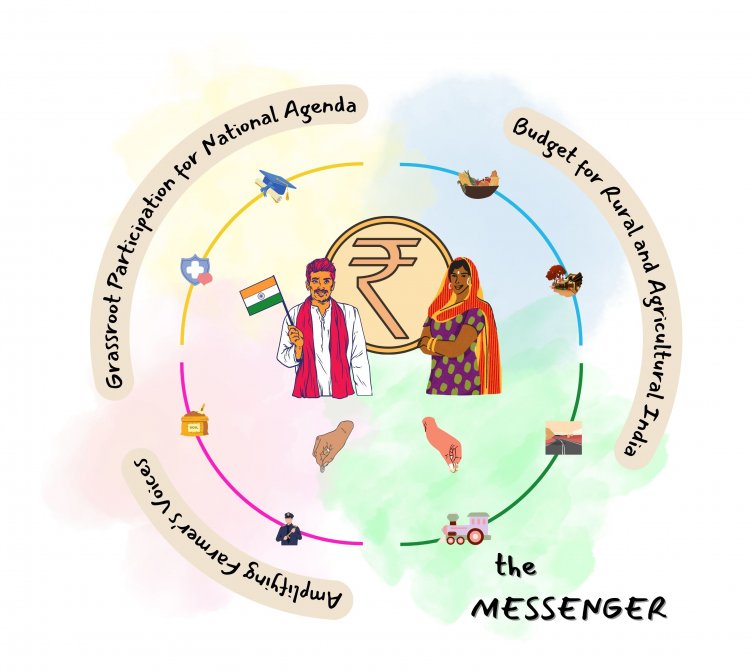
Imagine a middle-income family in India sitting around a table and planning its household budget. By the way, the term ‘economy’ is derived from the Greek ‘oikonomia,’ i.e., ‘household management.’ So this family is labouring under a venerable history of being homo economicus. Each month, they spend their time ruminating on how to spend their money. They have their constraints and their desires. Every family has experienced these pressures at some level, and the need to decide priorities, and how to allocate funds. If the nation is the family writ large, the Union Budget of India is household management for the whole country and impacts everyone in ways that may not always be easy to see, especially by citizens such as farmers who aren’t considered sophisticated.
If we want to recast that impression, we need to create opportunities for farmers to be seen as full citizens with an informed view on the Union Budget, as people who are affected by and have opinions about domains well beyond agriculture. Their views on the provisions for agriculture and allied sectors in part reflects their overall views on the budget. The Budget Charcha 2023-24 gives us an opportunity to introspect, deliberate and create a healthy conversation about the nuances of the budget from the point of view of the farmers.
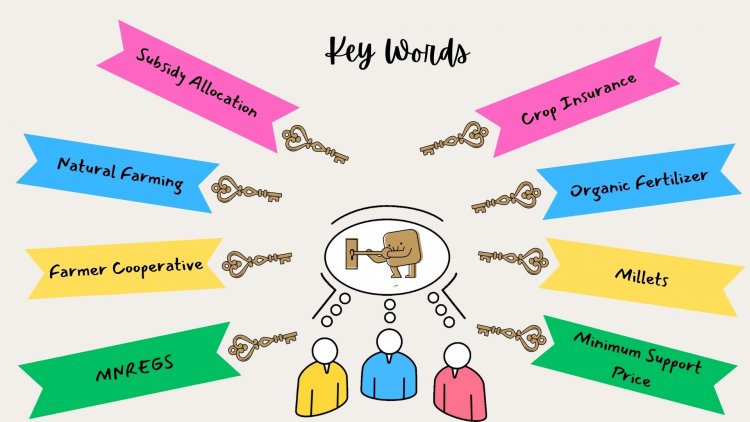
The Partnership
The recently concluded Parliamentary Budget Session for 2023-2024 afforded an opportunity for Rural Voice and Socratus Foundation to invite a diverse group of farmers, experts and Members of Parliament (MPs) to listen to farmer voices on the budget and introspect after doing so. The convening saw the participation of 20+ agriculture and allied farmers covering 7 states in the northern and eastern parts of India for a one day session on the 14th of March, 2023. Budget Charcha 2023-24 was convened by Harvir Singh from Rural Voice, which is a digital media platform for exchanging farmers' issues. Socratus created the architecture and structure for the convening.
The Issues
As you might imagine, the household management of this event had many hiccups along the way. We were concerned about not having enough farmers as we wanted our jury to be a close reflection of the diversity of India and reflect the Union Budget’s provisions for agriculture and its allied sectors. The logistics of the event was a significant concern which consumed valuable time in the build up to the event. The fixed seating at the venue also presented an initial challenge but our team incorporated it into our design, optimising for space. Three last-minute cancellations from potential jurors made us really nervous but then four new farmers joined the conversation.
The Venue
The convening was organized at the annexe building of the India International Centre (IIC), which overlooks the Lodi Gardens and is one of India’s premier cultural institutions in India. With palash trees crowned with vermillion flowers populating the area, and birds chirping in welcome, the space elicited awe and excitement from the farmers. The meeting room itself was cozy with mics on the tables, presenting a semi-structured seating arrangement for farmers that motivated them to speak up. With windows offering a glimpse into the IIC gardens, and the open patio next to the room, the atmosphere was ideal for a reflective and intimate discussion.
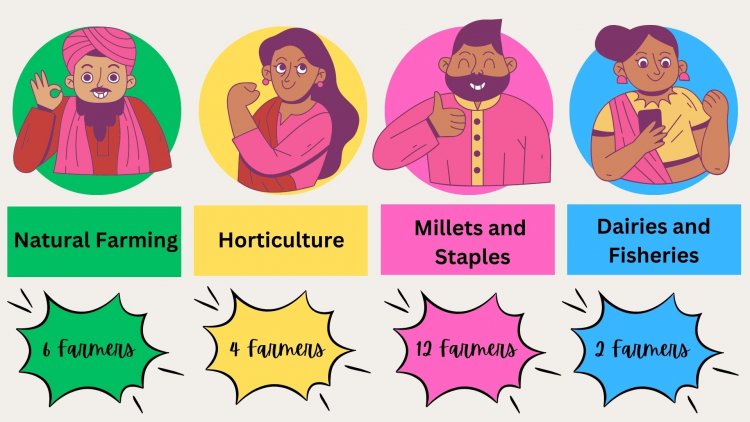
Design of the Budget Charcha convening
The convening looked at the budget from the lens of ‘farmers as citizens’ sharing their perspective of the budget as a whole and not as a special interest group partial to their respective sector. The plan was:
1. First, farmers and the experts would discuss the budget from a meta-perspective, and its implications on the life of a common citizen.
2. Then, the discussion will narrow down the provisions in the budget for rural India.
3. Finally, we will look into how it affects the farmer as an individual.
The key takeaways from these discussions will be taken to Members of Parliament, to create a platform where citizens, experts and MPs deliberate together. One way to imagine this process is as a ‘farmer citizens' journey’ that goes from Us to We to I.
The Pre-orientation of Union Budget 2023-24
The farmers were oriented about the budget a week prior to the convening and its allotments for various schemes catering to agriculture and rural development. Those among them who became jurors were provided resources - such as a microsite we created - to help them prepare for the convening. Most of the farmers were initially unfamiliar with the budget, but were keen on finding out more about it and how they might help to make the convening more fruitful. There were also valuable insights into the agricultural community's special requirements and preferences, which may drive decisions on where to devote resources and what activities to prioritise.
The rural expert interaction
An interactive discussion on the state of rural development was facilitated by Dr. Mahi Pal (Former Officer of Indian Economic Service), Ministry of Rural development & former deputy director, Agriculture Ministry). The session concluded with the Budget Banaye Mantralaya activity which saw intense participation by farmers as they shared their preferences for budgetary allocations. This activity included an additional ‘other’ box to allow farmers to imagine a sectoral ministry which they perceived was lacking emphasis in the Budget.
Takeaways from Rural Budget Mantralaya activity
The budget allocation activity reflected the level of awareness of the farmers regarding ministries relevant to the rural economy. This was shared with the MPs present in the meeting. Health and Education were the emergent themes as indicated under the box labelled ‘other’. Out of the ten ministries represented on the ballot boxes, Health and Education stood second only to Agriculture and Farmers’ Welfare. A relatively mild interest was observed in allocations to communications, chemicals and fertilizers ministries which hints that the farmers wish to move away from using chemical fertilizers. In contrast to the (actual) proposed government budget, farmers' prioritised health, education and agricultural development.
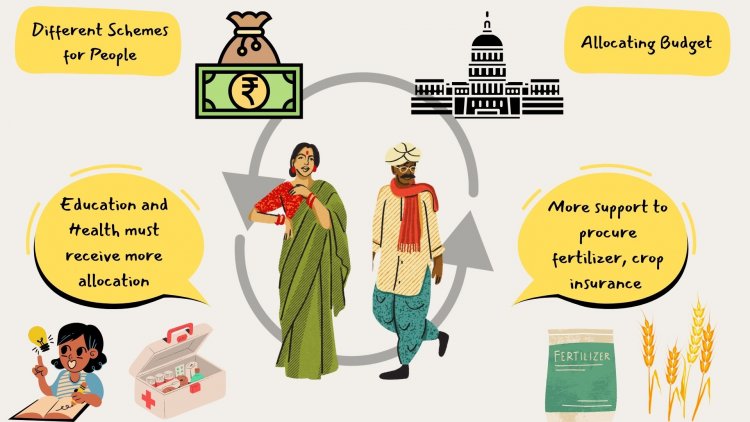
The Farmer Agri-budget takeaways
The farmers recorded their views on the budget on coloured sheets which were posted on the comment boards. Anima Minz, a tribal woman farmer from Odisha emphasised on the need to improve marketing and processing of coarse grains, especially millets, which provided better income opportunities. The participating farmers also underlined the role of FPOs in boosting the agriculture sector. Speaking in praise of organic farming, some of the farmers also highlighted the role of organic fertilisers, which are made entirely from on-farm materials such as cow dung, cow urine, neem leaf, jaggery etc.
The farmers expressed satisfaction that the questions concerning agriculture and rural economy were addressed and the need was felt to reflect farmers’ aspirations in the future budget-making process. Farmers conveyed their content with the allocation towards natural farming, allied sectors like fisheries, dairying, horticulture, animal husbandry, promotion of cooperatives and the gendered budgeting for NRLM. Some important takeaways from the comment board activity with farmers:
1. Decrease in allocations to insurance and subsidy schemes
2. In line with doubling farmers income according to Ministry of Agriculture, farmer perspective spelt out that the Budget is not a matter of doubling the farmers income, but of doubling the costs to farmers
3. Lack of a ready model markets for organic farming in the budget
4. Linking education and health to agriculture with emphasis on tribal farmers
5. Minimum Support Price (MSP) guarantee for all crops
6. Sensitization of farmers about subsidies on fertilisers, seeds and agricultural machinery.
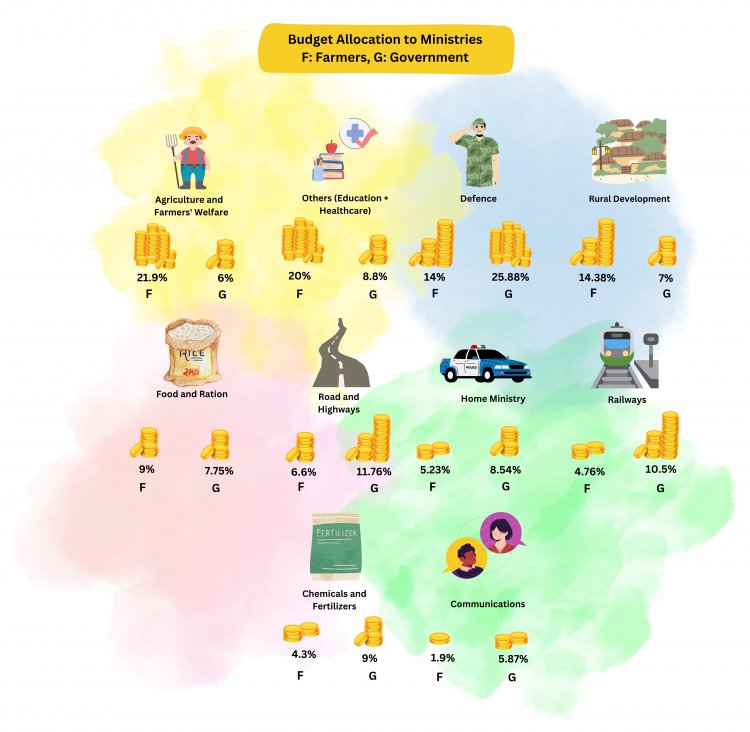
The MP’s Agri-budget takeaways
The MP’s reflected on the inputs of the farmers to potentially take it up for discussion in the parliament. Naresh Sirohi, former National Vice President, BJP Kisan Morcha suggested that the price policy of the government should be regularly reviewed to make agriculture lucrative. The BSP MP Danish Ali and BRS Lok Sabha member Nama Nargeswara Rao advocated for a higher allocation for the agriculture sector, while JD(U) national General Secretary K C Tyagi reiterated the farmers’ demands for a guaranteed MSP and a higher remuneration for MNREGA.
Many farmers acknowledged that the budget presentation aided them in a healthy participatory deliberation and laid the foundation for a robust and synergistic convening. The convening helped us (Rural Voice and Socratus) and the MPs present there surface farmers' systemic understanding of supply chains and markets. For instance, the farmers practicing natural farming were concerned about the general budget allocations towards not only allied sectors but also other concerns like rail, defence and communications. There’s scope for building articulate knowledge materials to inform MPs for a conducive and healthy interaction with citizens.
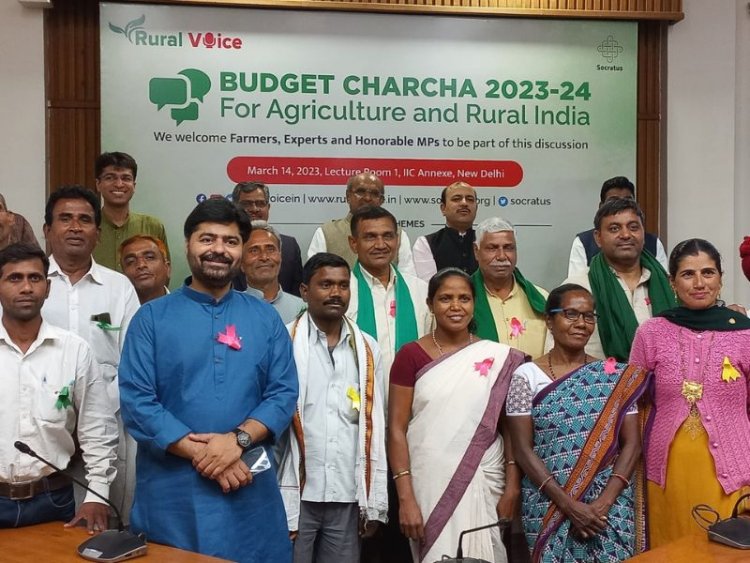
Conclusion
The Budget Charcha gave the farmers in the jury and the audience a unique opportunity to delve deeper into the budget, especially for rural and agricultural India. We created a platform for them where they could question experts, interact with Members of Parliament, voice their feedback and concerns about the government. MPs gained valuable insight into rural India’s psyches and concerns about the impact that the budget will have on them. The learnings for Socratus, on the other hand, will guide us in our future designs, and inform our convenings in the future.
(The contributors to the post are members from Socratus Foundation: Alok Shrivastava, Jonathan David Syiemlieh, Nithin Vemula, Prachur Goel, Rajesh Kasturirangan and Shivika Bhan, Illustrations by Nitya Jadeja)



 Join the RuralVoice whatsapp group
Join the RuralVoice whatsapp group

















